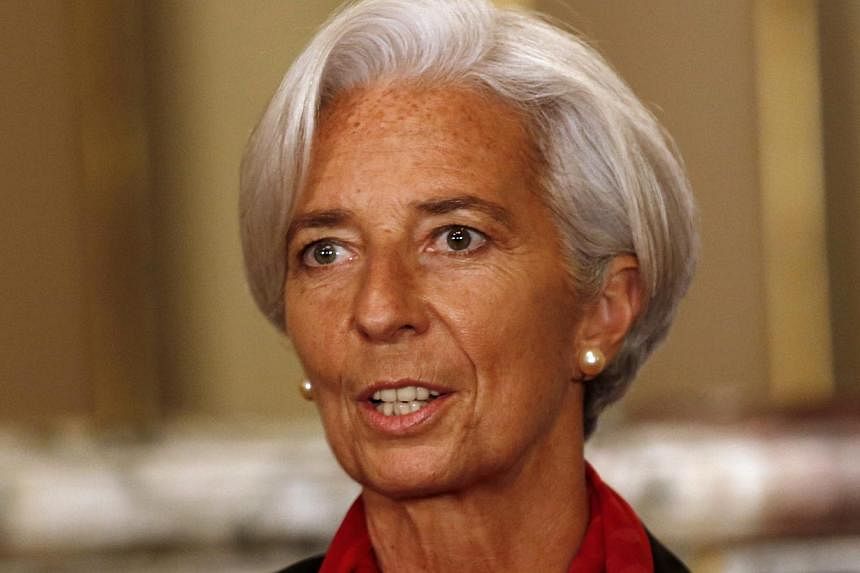WASHINGTON (AFP) - IMF chief Christine Lagarde on Thursday encouraged the European Central Bank to unleash fresh stimulus on the ailing euro zone, saying falling global oil prices increase the risk of deflation.
Ms Lagarde, speaking to a Washington think-tank, said that weak growth in the 19-nation euro zone, as well as Japan, combined with low inflation was a key risk to the already strained recovery of the global economy, particularly if those conditions are prolonged.
"In the euro area, cheaper oil is contributing to a further decline in inflation expectations, which increases the risk of deflation," the managing director of the International Monetary Fund said, according to a prepared text of her speech to the Council on Foreign Relations.
"This bolsters the case for additional monetary stimulus, which the European Central Bank has indicated it stands ready to support as needed."
Crude-oil prices have lost almost 60 per cent of their value since last June, in the face of a supply glut and weaker demand in slowing economies.
Analysts project that oil prices will continue to fall at least in the first half of this year.
Ms Lagarde's remark came as the ECB prepared financial markets for an imminent programme of large-scale sovereign bond purchases, or quantitative easing, to counter the risk of deflation.
On Wednesday, ECB president Mario Draghi said the bank had few other options to QE at its disposal.
"All members of the ECB's governing council are determined to fulfil our mandate," he told the weekly newspaper Die Zeit, when asked about his plans to launch the controversial programme.
The central bank's mandate is to keep price inflation at just under 2 per cent, but it fell to a negative 0.2 per cent in December, raising fears that the euro zone could fall into a cycle of damaging deflation where falling prices lead to job losses and lower output.
"Of course there are differences about how we can do that. But it's not as if we have an endless amount of possibilities," Mr Draghi said.
His comments fuelled further speculation that the ECB's governing council will announce plans for a quantitative easing programme at its meeting on Jan 22.

